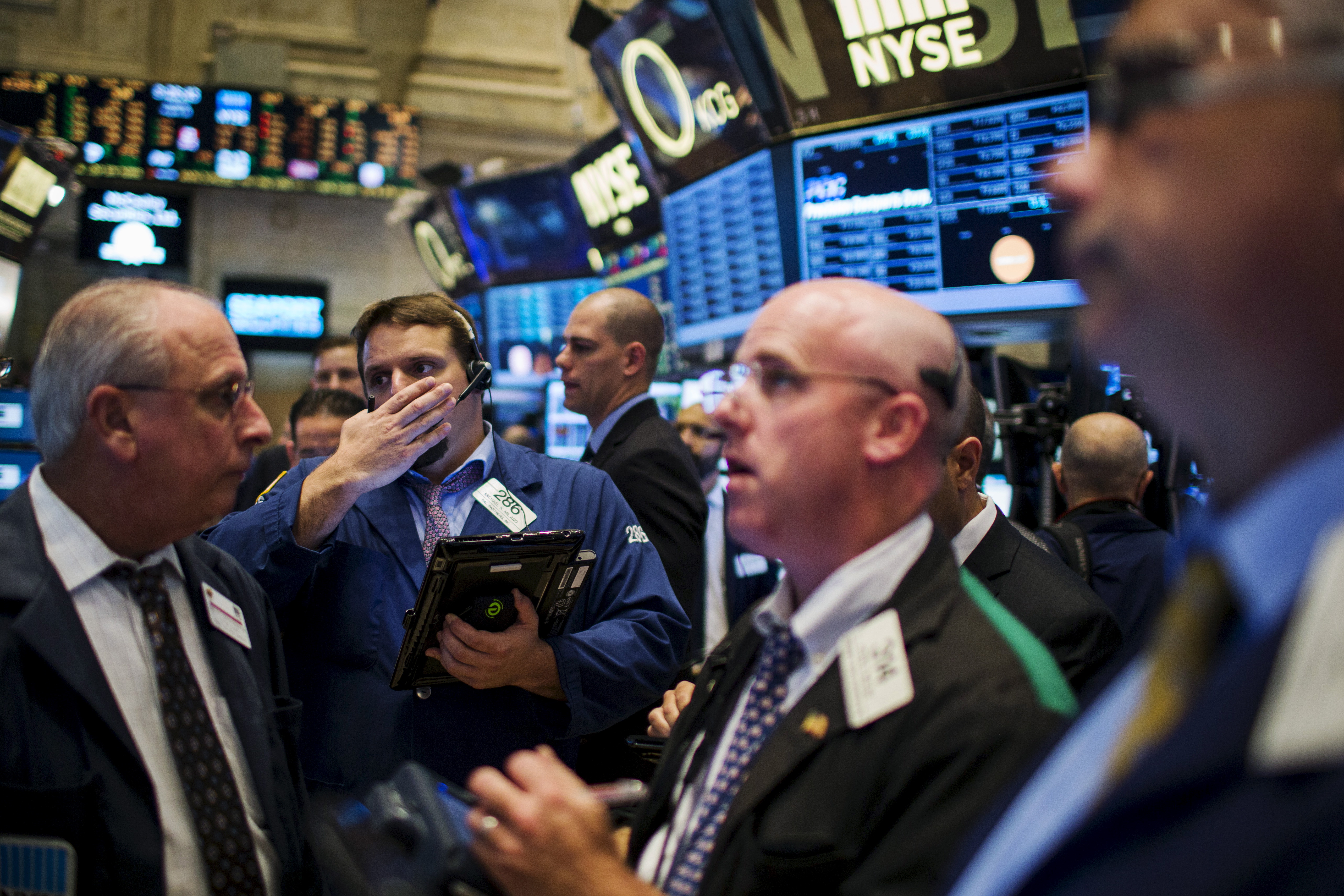The stock market just blew up the last argument for the Fed to raise interest rates
The hawks at the central bank no longer have a theoretical leg to stand on


A free daily email with the biggest news stories of the day – and the best features from TheWeek.com
You are now subscribed
Your newsletter sign-up was successful
Since the Federal Reserve dropped its benchmark interest rate target down to near zero in the fall of 2008, a chorus of critics has deployed a shifting variety of arguments for raising the rate immediately. Back in 2009 and 2010, it was looming inflation. When that failed to materialize — when inflation actually remained at historic lows — they moved on to a projection that the recovery was heading toward escape velocity. With rates so low for so long, catch-up growth was just around the corner (remember "green shoots?"), and therefore the Fed must raise rates to stay ahead of the curve.
While the economy is stronger now than it was in 2011, economic and job growth have consistently been weak at best. So the critics have settled on another argument: the risk of financial instability. In this view, low interest rates will cause people to "reach for yield" — i.e. pour money into high-yielding assets — leading to a bubble in risky assets and another financial crisis.
This theory has always had a number of gigantic holes. However, it has completely disintegrated over the last few days — particularly after Monday's hair-raising stock market opening, when the Dow Jones average fell by 1,000 points before making a comeback. If the market is already this unsettled, clearly there is no danger of low rates inducing excessive euphoria among the investor class.
The Week
Escape your echo chamber. Get the facts behind the news, plus analysis from multiple perspectives.

Sign up for The Week's Free Newsletters
From our morning news briefing to a weekly Good News Newsletter, get the best of The Week delivered directly to your inbox.
From our morning news briefing to a weekly Good News Newsletter, get the best of The Week delivered directly to your inbox.
Now the only question is whether Federal Reserve Chair Janet Yellen will abandon her plan to raise rates in the next month or so.
Since the financial crisis, the Fed has distinguished itself mainly by being not a grotesque trainwreck of an institution, unlike most other major central banks. Sweden began raising its interest rates in 2010, followed by the European Central Bank in 2011. The Swedish move was eventually reversed when the country slid into outright deflation, while the ECB changed course after that move helped create Great Depression conditions in several eurozone states.
The Fed has not done nearly enough, but has avoided doing outright harm, conducting several rounds of unconventional monetary stimulus as the economy repeatedly failed to recover properly.
However, the Fed has also been very obviously itching to get rates up. After winding down its unconventional efforts earlier this year, it has been signaling a hike in rates next month for quite some time. That's despite the fact that full employment has very clearly not been reached, and that the Fed has been undershooting its price target for the past three consecutive years — indeed, inflation has been trending down of late. As a fig leaf justification for raising rates, all that was left was the specter of financial instability. As Larry Summers argues in a great piece, that debate is now over:
A free daily email with the biggest news stories of the day – and the best features from TheWeek.com
With credit becoming more expensive, the outlook for the Chinese economy clouded at best, emerging markets submerging, the U.S. stock market in a correction, widespread concerns about liquidity, and expected volatility having increased at a near-record rate, markets are themselves dampening any euphoria or overconfidence. The Fed does not have to do the job. At this moment of fragility, raising rates risks tipping some part of the financial system into crisis, with unpredictable and dangerous results. [Financial Times]
In other words, with Europe still mired in catastrophe and Asia suffering serious financial chaos, it's easy to imagine that a Fed rate hike could even spark another recession. More to the point, there was no justification for a hike even before all this chaos. As Paul Krugman writes, since it is impossible to know how much slack is left in the economy, best to hold off on any rate hikes until inflation definitely starts to rise. Once that happens, you can be sure that the structural job creation capacity of the economy is about full, and raise rates without fear of preventing the creation of a great many jobs. The theoretical potential of financial unrest was always nothing compared to the reality of millions of people out of work.
Will any of this sink in over at the Federal Reserve? Yellen is by all accounts an extremely sharp economist. But it sometimes seems like someone has been spiking the water at the Fed with datura.
However, if anything can get the attention of policy elites, it's a market crash. Keep your fingers crossed.
Ryan Cooper is a national correspondent at TheWeek.com. His work has appeared in the Washington Monthly, The New Republic, and the Washington Post.
-
 What to know before filing your own taxes for the first time
What to know before filing your own taxes for the first timethe explainer Tackle this financial milestone with confidence
-
 The biggest box office flops of the 21st century
The biggest box office flops of the 21st centuryin depth Unnecessary remakes and turgid, expensive CGI-fests highlight this list of these most notorious box-office losers
-
 What are the best investments for beginners?
What are the best investments for beginners?The Explainer Stocks and ETFs and bonds, oh my
